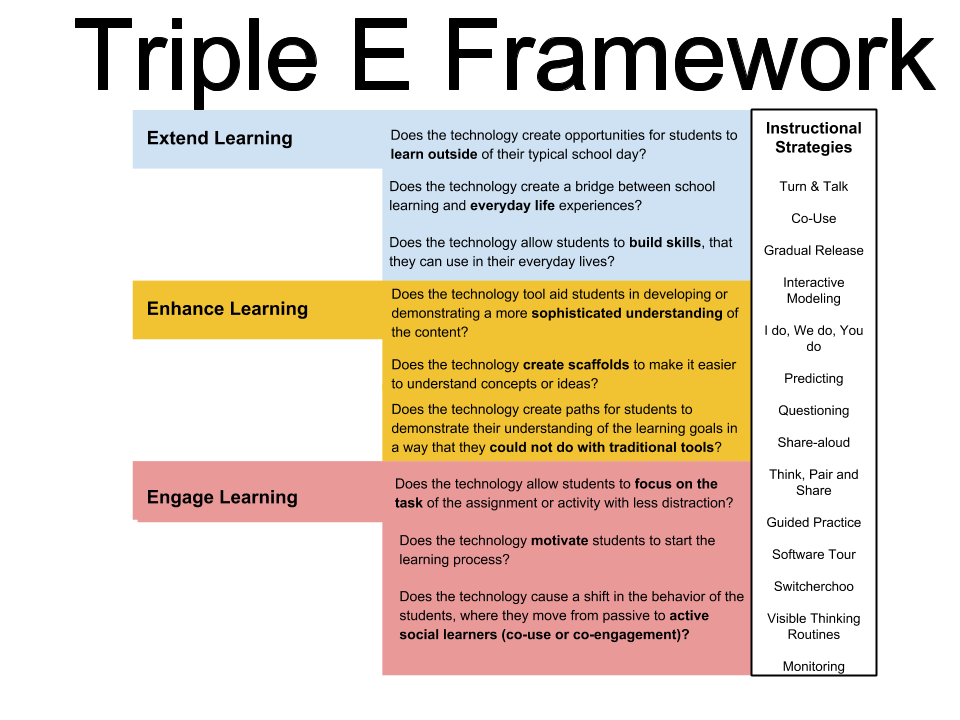Which Technology Integration Framework would you Choose?
Technology integration in the classroom, whether it be in-person, online, or hybrid, brings both benefits and obstacles. Fortunately, there is a substantial corpus of academic research on this intersection. These frameworks assist teachers in planning lessons that effectively include technology and enable students to do so in creative and critical ways. Educational leaders can use any framework chosen to evaluate whether the technology being utilized in the classrooms are for the right reason.
Remember!
Digital tools should enhance authenticity in learning and make learning more accessible for all students.
Let's look at these frameworks.
TPACK
Technology Integration Matrix (TIM)
The
Technology Integration Matrix (TIM) provides a framework for describing and
targeting the use of technology to enhance learning. The TIM incorporates five
interdependent characteristics of meaningful learning environments: active,
collaborative, constructive, authentic and goal directed. These characteristics
are associated with the five levels of technology integration: entry, adoption,
adaption, infusion and transformation (Florida Center for Instructional
Technology, 2021).
Therefore, the teachers at The Lodge School should be exposed to these frameworks so that their actions can have a theoretical basis for implementation which can garner more success.
Watch the
video to learn more about TIM or follow their blog.




Comments